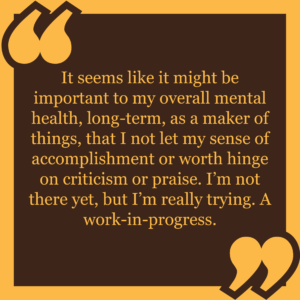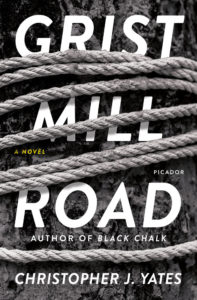 In our ongoing feature Between the Sheets, TrunkSpace picks the imaginative brains of authors to break down what it takes to create the various worlds and characters they breathe life into via the tools of their trade… sheets of paper. While technology continues to advance and change the pop culture landscape, the written word has remained one of the most consistent and imaginative art forms.
In our ongoing feature Between the Sheets, TrunkSpace picks the imaginative brains of authors to break down what it takes to create the various worlds and characters they breathe life into via the tools of their trade… sheets of paper. While technology continues to advance and change the pop culture landscape, the written word has remained one of the most consistent and imaginative art forms.
This time out we’re chatting with Christopher J. Yates to discuss his new novel “Grist Mill Road,” why he likes to discover story elements organically, and how two pints can fuel the creative fire.
TrunkSpace: Your new book “Grist Mill Road” was recently released to the public. When you finish a work and walk away from it in a creative sense, do you also have to walk away in personal sense? Is it difficult to put so much of yourself into something and then put it in the hands of the universe?
Yates: I wish I could walk away from it. But then there are interviews and articles to write, so if you walk away too far you might not be able to answer questions to your best. After my first book, “Black Chalk” was released, I think it took me two or three months to walk away.
TrunkSpace: When you’re sitting down to write a new book like “Grist Mill Road,” how much preparation goes into the genre aspect of what you’re working on? In the planning stage, do you also track the thrill ride moments, or do those come out later in the process as the story takes shape in your mind?
Yates: I put absolutely ZERO planning into it. “Grist Mill Road” begins with a horrific crime. A teenage boy ties a teenage girl to a tree and shoots her over and over again with a BB gun. I had no idea for two years why this had happened and was beginning to panic. One day the idea just popped into my head. I prefer to do it that way, organically, rather than taking moves from the drama writing playbook, which bores me beyond tears.
TrunkSpace: As you look back at the work, what are you most proud of when it comes to “Grist Mill Road?”
Yates: I’m most proud of the language. Most people read books for the plot, and I think I’ve written a great plot. But when I read, I read for language, for voice. I always know within five pages whether or not I’m going to like a novel just from the sense of style, tone and language.
TrunkSpace: What did you learn about yourself as a writer in the process of working on the book? They say that the second time is a charm… is the second book a charm as well?
Yates: We will see if the second time’s a charm. The novel’s just come out and I’m very nervous about sales. What I’ve learned about myself is that I didn’t learn from the first novel to try and relax about sales.
TrunkSpace: You discovered you would become a published author a day before turning 40. Some people feel that they’ve missed their moment to pursue their dreams, but you seem like a perfect example of it never being too late to swing for the fences. Was it daunting for you to take that first step in pursuing your writing or was it an easy decision to make?
Yates: So the first step was when I turned 30. It took me 10 years of steps to get published. No, it’s never too late. Arguably it might get harder, but as a survivor of two unpublished novels and over 50 rejections for my “third” novel (“Black Chalk”), which not only got published but did very well, I can assure you it’s never too late. Persist.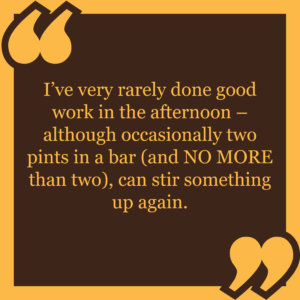
TrunkSpace: You also studied law. As an author working in the thriller space, have you found yourself being able to tap into that part of your education when crafting elements of your novels?
Yates: Studying law was about learning how to fashion a coherent argument. I think a good plot is very similar to a coherent argument.
TrunkSpace: How long did it take for you to discover your voice as a writer?
Yates: Maybe five or six years. My voice was considered “promising” with those first two novels that never got published. But “promising” wasn’t good enough. You have to get to “polished”. I buffed away for a long time.
TrunkSpace: Regarding the process, is writing a labor of love for you or does it feel more like labor? Do you enjoy the process?
Yates: Oh, on the good days, hell yes, it’s like you’re flying. Everything else in the world seems very small and far away, there’s just you and the words, it’s the best. And some days it’s just a grind, a labor. Editing can be laborious (although some writers love to edit). I guess my favorite thing is when I write a paragraph and I know I’m not going to change a single word.
TrunkSpace: And what does that process look like? What are the ideal conditions for putting in a good day of writing?
Yates: Everyone’s different, you have to find your conditions. Mine involve writing in the morning until maybe 2 p.m. when I take the dog for a walk. I’ve very rarely done good work in the afternoon – although occasionally two pints in a bar (and NO MORE than two), can stir something up again.
TrunkSpace: Do you self-edit as you write?
Yates: Absolutely. I self-edit hard, over and over again. Unless I’ve been flying!
TrunkSpace: Where are you the hardest on yourself as a writer?
Yates: I have a very intense fear of getting something wrong factually. I refuse to make shit up unless I know for certain it is true/possible/not a huge pile of horse shit.
TrunkSpace: What are you working on now and what will people be able to read next?
Yates: I’m afraid I’m going to be coy about this. I have 15,000 words of something I love, I hate, I love, I hate… but if people want to read something after they’ve read my fiction, there are a lot of essays about writing on my website.
“Grist Mill Road” is available now from Picador USA.



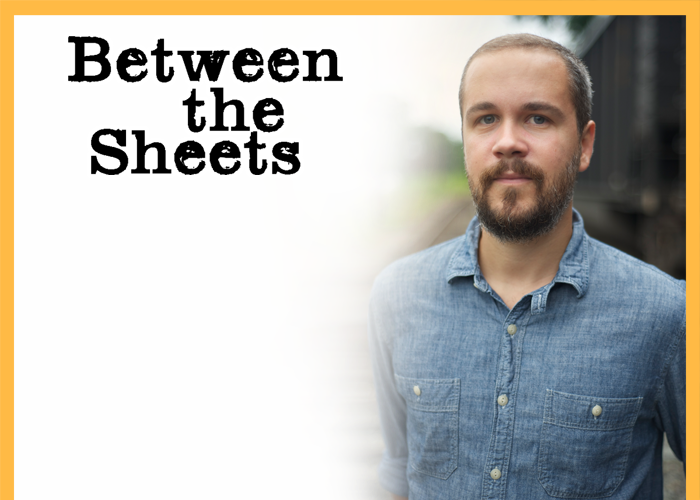
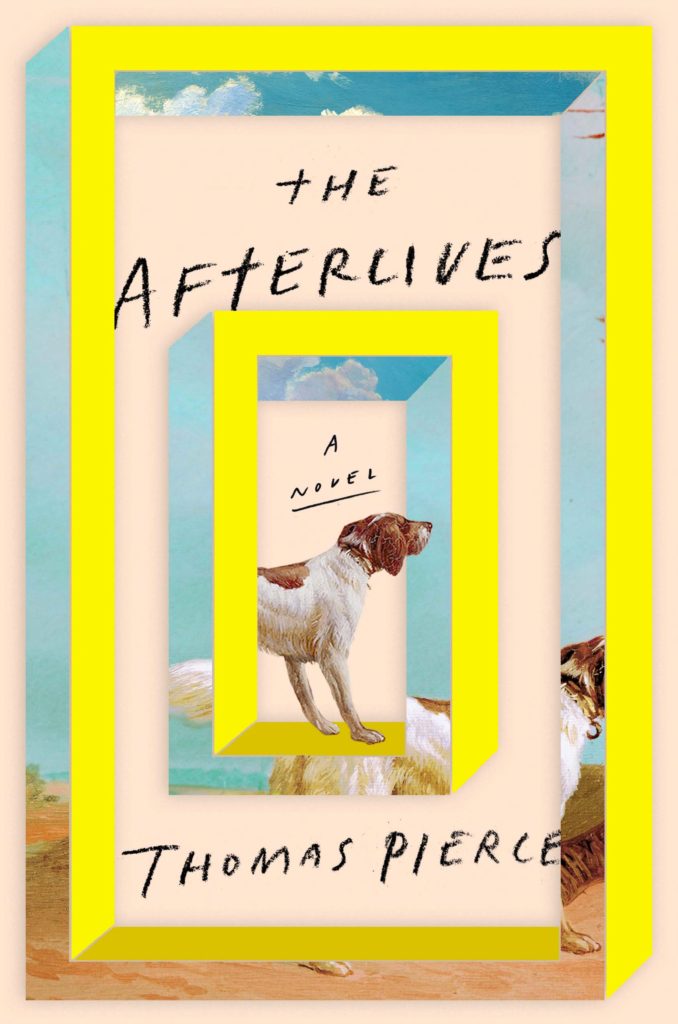 In our ongoing feature, Between the Sheets, TrunkSpace picks the imaginative brains of authors to break down what it takes to create the various worlds and characters they breathe life into via the tools of their trade… sheets of paper. While technology continues to advance and change the pop culture landscape, the written word has remained one of the most consistent and imaginative art forms.
In our ongoing feature, Between the Sheets, TrunkSpace picks the imaginative brains of authors to break down what it takes to create the various worlds and characters they breathe life into via the tools of their trade… sheets of paper. While technology continues to advance and change the pop culture landscape, the written word has remained one of the most consistent and imaginative art forms.